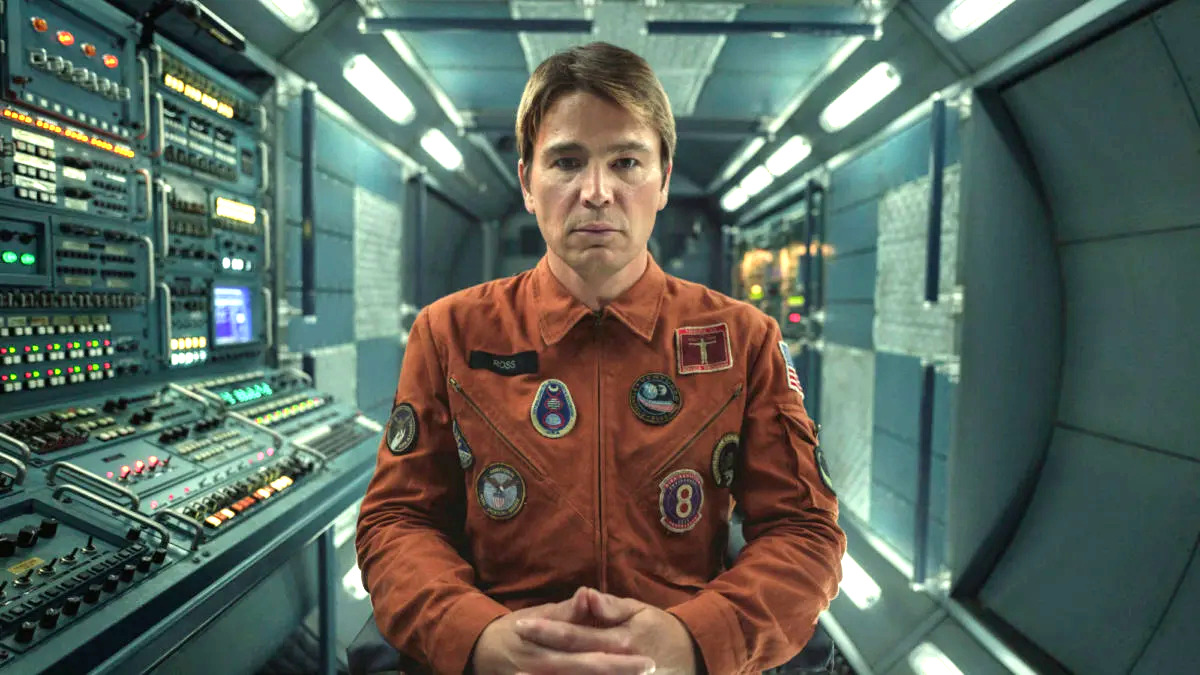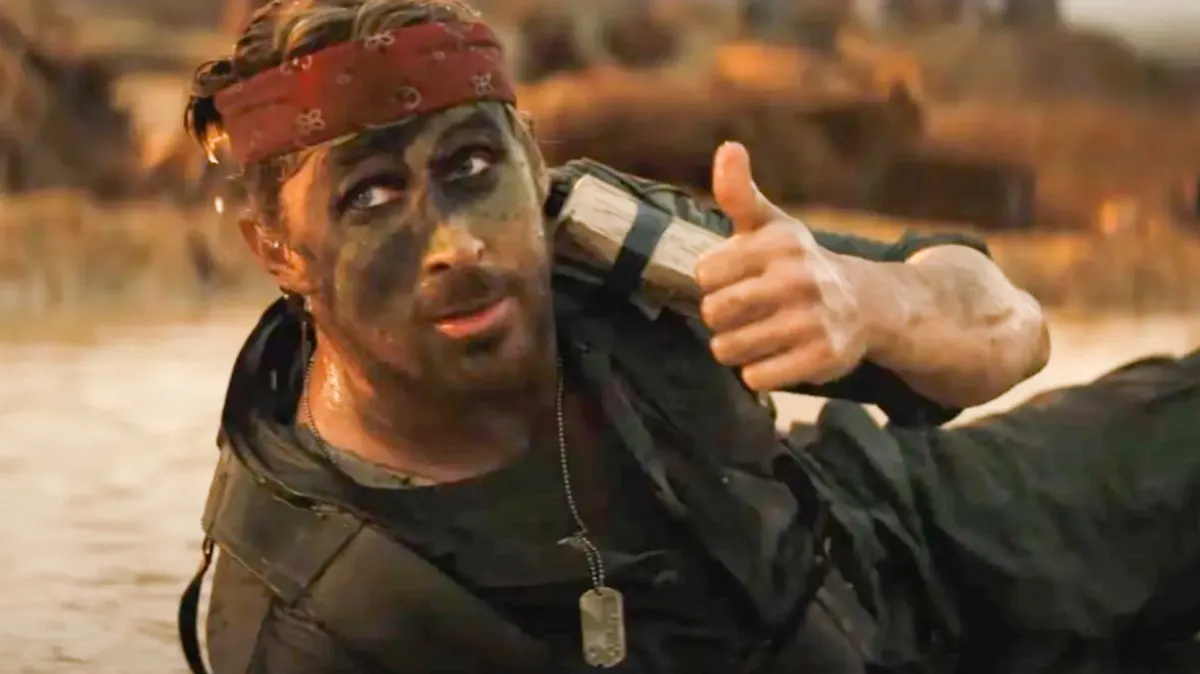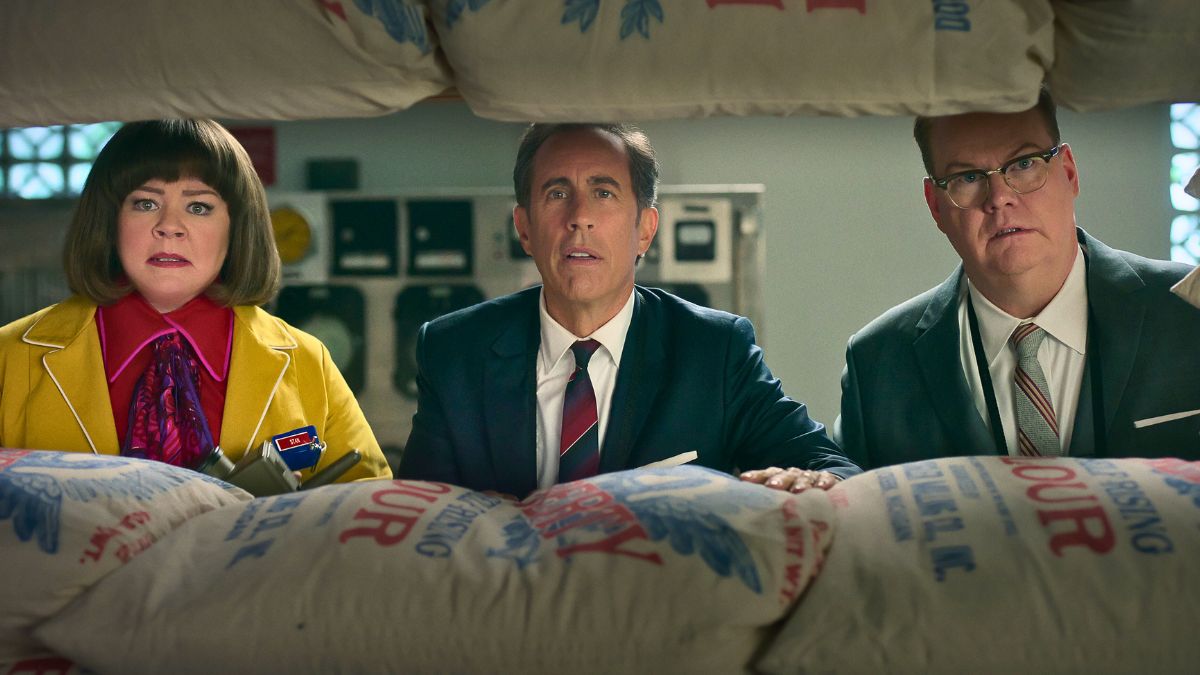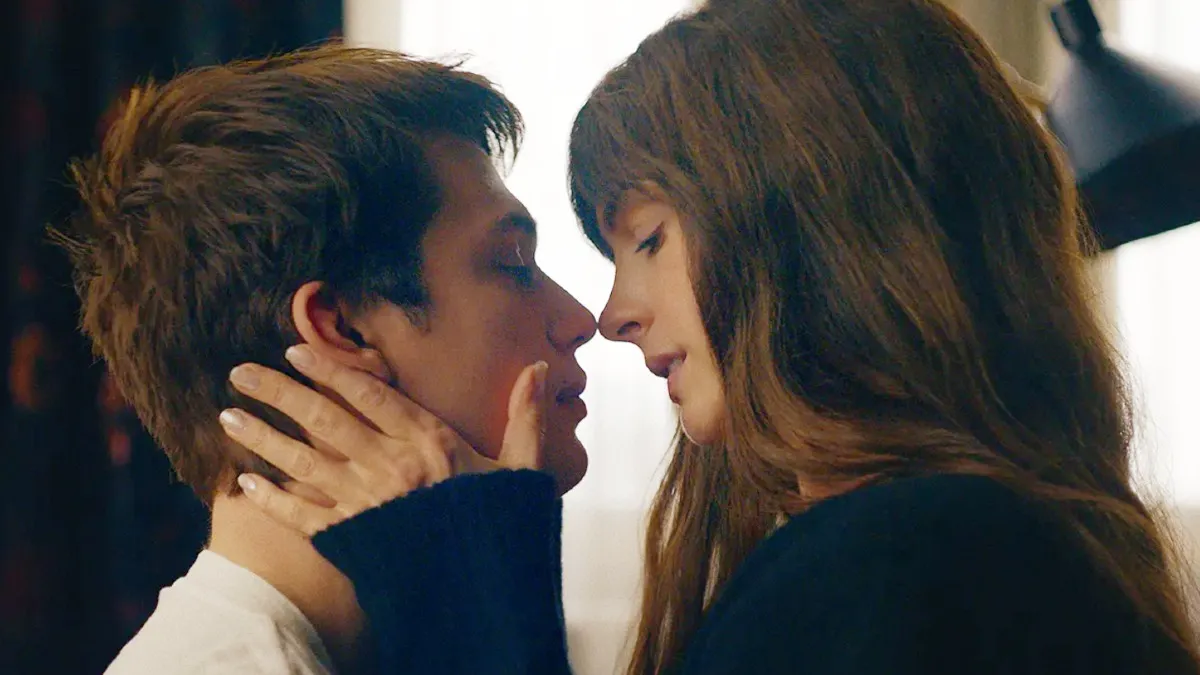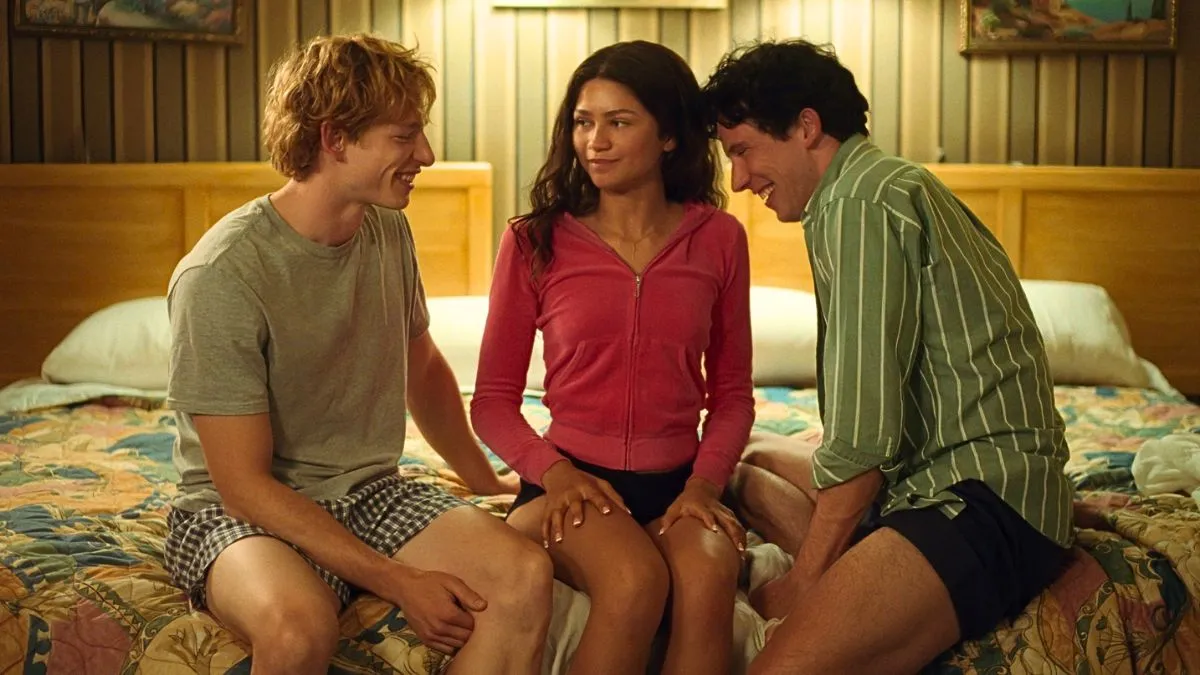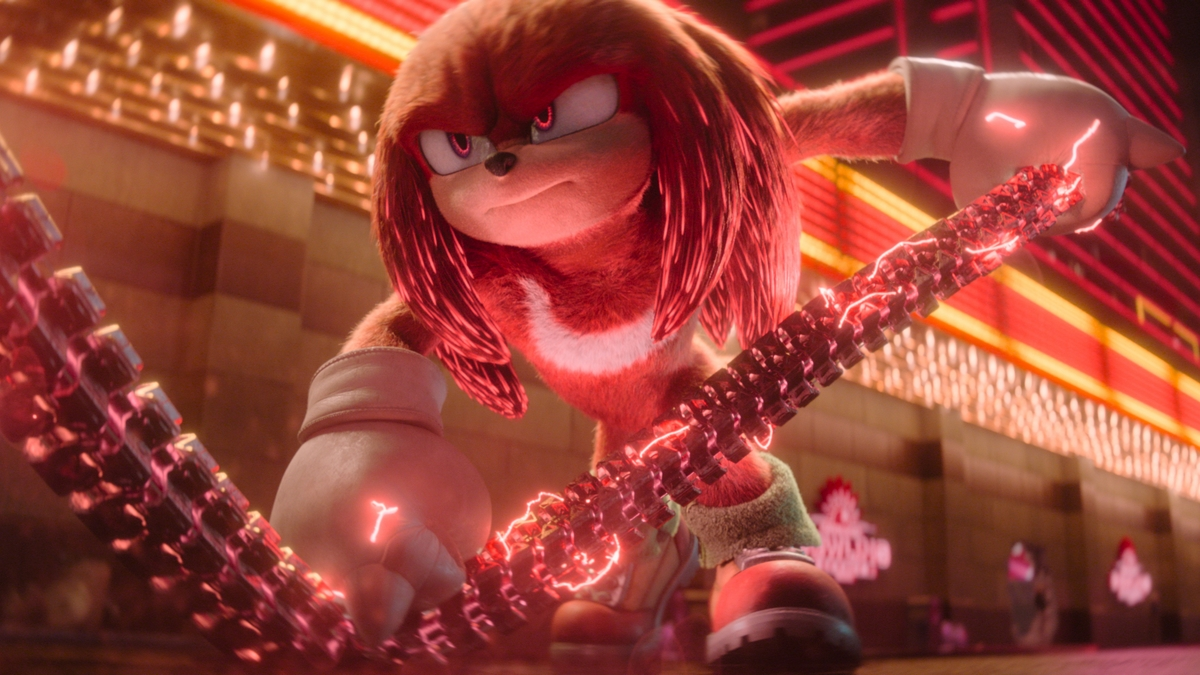The first show that Black Mirror creator Charlie Brooker co-wrote, as opposed to simply being a writer on, was the uncannily prescient satire Nathan Barley. Despite this apparent ability to see into the future, as well as an obvious immersion in sci-fi and nerd culture to go along with his biting, cynical writing style, few would have guessed he’d end up writing the spiritual successor to The Twilight Zone. But, after a couple of middling seasons, the latest helping of Black Mirror is definitely worthy of reclaiming that mantle.
While there are certainly ups and downs in season 6, as well as a few shock endings that are telegraphed a little too obviously (and one shock that comes out of the blue), this is an absorbing five episodes — which says a lot, as two of them are feature-length. There are countless in-universe Easter Eggs, old school sci-fi references, and a surprising amount of brilliantly dark humor to keep viewers happy. There’s even an Arrested Development-style joke that starts with a line in episode one before paying off in episode four, no small feat for an anthology series.
The staleness of the last couple of seasons (and the middling success of Bandersnatch, the interactive episode of Black Mirror that Brooker released pre-pandemic) has all but vanished. This is mostly down to the writers remembering that a speculative idea can only drive a story so far, and that character is the real engine of a compelling fable. They’ve also fully embraced the horror genre in a couple of the episodes, which means less of a reliance on the already well-mined intersection of technology, culture, and human psychology.
Episode one, “Joan is Awful,” follows Joan (Annie Murphy), as an in-universe version of Netflix (Streamberry) begins serializing her life almost in real-time. When the show becomes a hit on the streaming service, her life begins to unravel. Joan in the show that’s within the show is played by Salma Hayek, or, as we come to find out, an AI version of Salma Hayek, after the famous actress sold her image rights to Streamberry.
The season opener is hilarious (Hayek puts in a genuinely laugh out loud performance as herself) and asks a lot of interesting questions about things like the role of AI in creating content in the future, and the notion of whether or not these creations have consciousness. “Joan is Awful” is also a great little parable about reading the terms and conditions, while the climax leaves the audience with a few intriguing thoughts about the nature of art itself — whether it’s supposed to challenge us and make us grow, or simply be something relatable and comfortable — before we get an uncharacteristically happy ending (for Black Mirror, anyway). However, on the whole, it’s trying to fit a little too much in to earn a spot in the show’s canon of all-time great episode.
“Loch Henry,” on the other hand, feels like it might end up being one of those Black Mirror episodes that everyone does remember, thanks to its bleak nature and brilliant exploration of the exploitative nature of true crime. Lacking any real sci-fi element, the episode begins with filmmakers and romantic partners Davis (Samuel Blenkin) and Pia (Myha’la Herrold) heading to Davis’ hometown, a gorgeous, lochside village in rural Scotland. When the very much not white Pia meets Davis’ mother, there’s some major Get Out vibes (but working class, and Scottish), although that’s not where the story heads.
Soon, it’s revealed the town was once home to a notorious and sadistic serial killer, who also shot Davis’ father, a policeman. Pia convinces Davis to do a documentary about the murders, only for an incredibly dark twist to turn the story on its head. While the shock reveal isn’t too much of a surprise if you’re paying attention, the final 10 minutes of the episode – which deal with the fallout of that twist – are astounding, especially from Blenkin.
“Beyond the Sea” is the first of the two longer episodes, and is a definite return to the sort of speculative sci-fi the show is most known for. It follows David and Ross (Aaron Paul and Josh Hartnett), a pair of astronauts two years into a six-year mission away from Earth. Although set in the 60s, a technology exists that allow them to beam their consciousness back into a robotic version of themselves (replicas) on Earth, so they can feel like they’re with their families. However, tragedy strikes, and Hartnett’s character’s wife and children are murdered by a Manson-esque cult who consider the replicas to be heretical.
Worried about Ross’s mental health, and what it means for his actual body floating in space, David allows him to use his replica, and from there things snowball to a bleak, disturbing conclusion. Chock full of brilliant references, from a famous Ray Bradbury collection to a Kurt Vonnegut deep cut, “Beyond the Sea” feels a little too much like an homage at points, but Paul and Hartnett put in unbelievable performances, and really carry the slower parts of the episode.
“Mazey Day” is the shortest and possibly the weakest installment of the season. It stars the brilliant Atlanta actor Zazie Beetz as Bo, a paparazzo in the early 2000s who grows cold on the career after the parasitic nature of the profession becomes too much for her. However, when a famous movie star (and the titular actress) goes into hiding after disappearing from a movie set, Bo is compelled to try and seek her out for one last, massive payday. Few would argue with Brooker that tabloid culture in the early 2000s – before everyone had a smart phone – was pushy to the point of criminal and disturbing, but this episode takes too wild a turn to be truly compelling. And, while Beetz is phenomenal, and we’re left with a typical Black Mirror ending in the sense that we see the greediest and worst of humanity, there’s not enough clues to make the twist feel earned.
The fifth and final chapter, “Demon 79”, is the most supernatural, although the explosive ending is one that reminds us of the perils of technological races, especially with regards to weaponry. Set in the midlands in the U.K in 1979 (think Peaky Blinders, accent-wise), this comedy horror follows a young woman of South Asian descent named Nida (Anjana Vasan), as she accidentally summons a demon named Garb (Paapa Essiedu), who tells her she needs to kill three humans over the next three days to stop an apocalypse.
The longest episode in the season takes place just before the general election that swept Margaret Thatcher into power, and ties in with the rise her politics, the growth of the racist National Front, and how deeply entwined the conservative movement is with vicious racism. Until the end, “Demon 79” never really lets the audience have certainty about whether Nida’s demon is real, or the manifestation of her crumbling mental health, which is failing under the weight of bigotry she faces.
Brooker is married to a woman of South Asian descent in real life (former television presenter Konnie Huq, whose sister Rupa is a British MP), and her upbringing may have inspired some elements of “Demon 79.” As someone from the same background, this episode particularly struck a chord with me, but even without that pull, it’s a fantastic departure from the usual Black Mirror fare, offering everything great about the show without the tech element.
Despite the refreshed nature of the series, this season of Black Mirror feels like an older one, in all the best ways. Perhaps it’s because Brooker has allowed himself to fall back into what he knows best: delving into how man is a myopic, selfish, and dangerous creature. Or, maybe it’s because it’s been so long since the last run that the audience would love anything he puts out. However, this felt like an excellent season of television because it’s just that — even if it will leave you feeling anything but optimistic.

